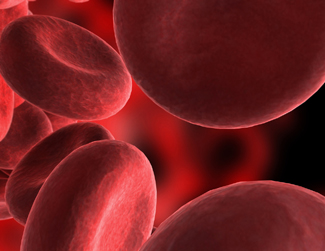Hemophilia
 Hemophilia is an inherited bleeding disorder where the blood fails to clot. This is because of low levels of specific clotting proteins in the blood. It mostly affects boys but can affect girls. Overall, very few people have it. There are about 400 babies with hemophilia born in the United States (U.S.) each year and approximately32,000 persons in the U.S. have hemophilia. This makes it about as rare as triplets (three babies in one birth).
Hemophilia is an inherited bleeding disorder where the blood fails to clot. This is because of low levels of specific clotting proteins in the blood. It mostly affects boys but can affect girls. Overall, very few people have it. There are about 400 babies with hemophilia born in the United States (U.S.) each year and approximately32,000 persons in the U.S. have hemophilia. This makes it about as rare as triplets (three babies in one birth).
About 80% of those with hemophilia have hemophilia A and 20% have hemophilia B. Hemophilia occurs in races and ethnic groups. Although women are less likely to have hemophilia, they can carry the gene for it and up to 20% of all mild hemophilia patients are female. The section called Genetics explains why some people are born with hemophilia.
People with hemophilia are born with the disorder. You can't catch it from someone else. Hemophilia won't go away. It lasts all your life. There is a rare, acquired form of hemophilia that can occur later in life that is not inherited.
There is no cure for hemophilia at this time, but medicine is available to help control the bleeding. Gene therapy has recently been approved for some hemophilia A and B people, it is not a cure, but may significantly reduce the need for prophylaxis for unknown periods of time. The focus in hemophilia management is on replacement or factor mimicking. These medicines help prevent bleeding so they can do most of the things everyone else does By using the medicine and visiting a doctor at a hemophilia treatment center (HTC) regularly, the person with hemophilia can expect to live a long and healthy life.
Because it is so rare, most people don't know much about hemophilia and may be misinformed on management of bleeding episodes. Even many doctors and nurses don't know more than the most basic information. The Handbook will teach you much of what you need to know about hemophilia.
